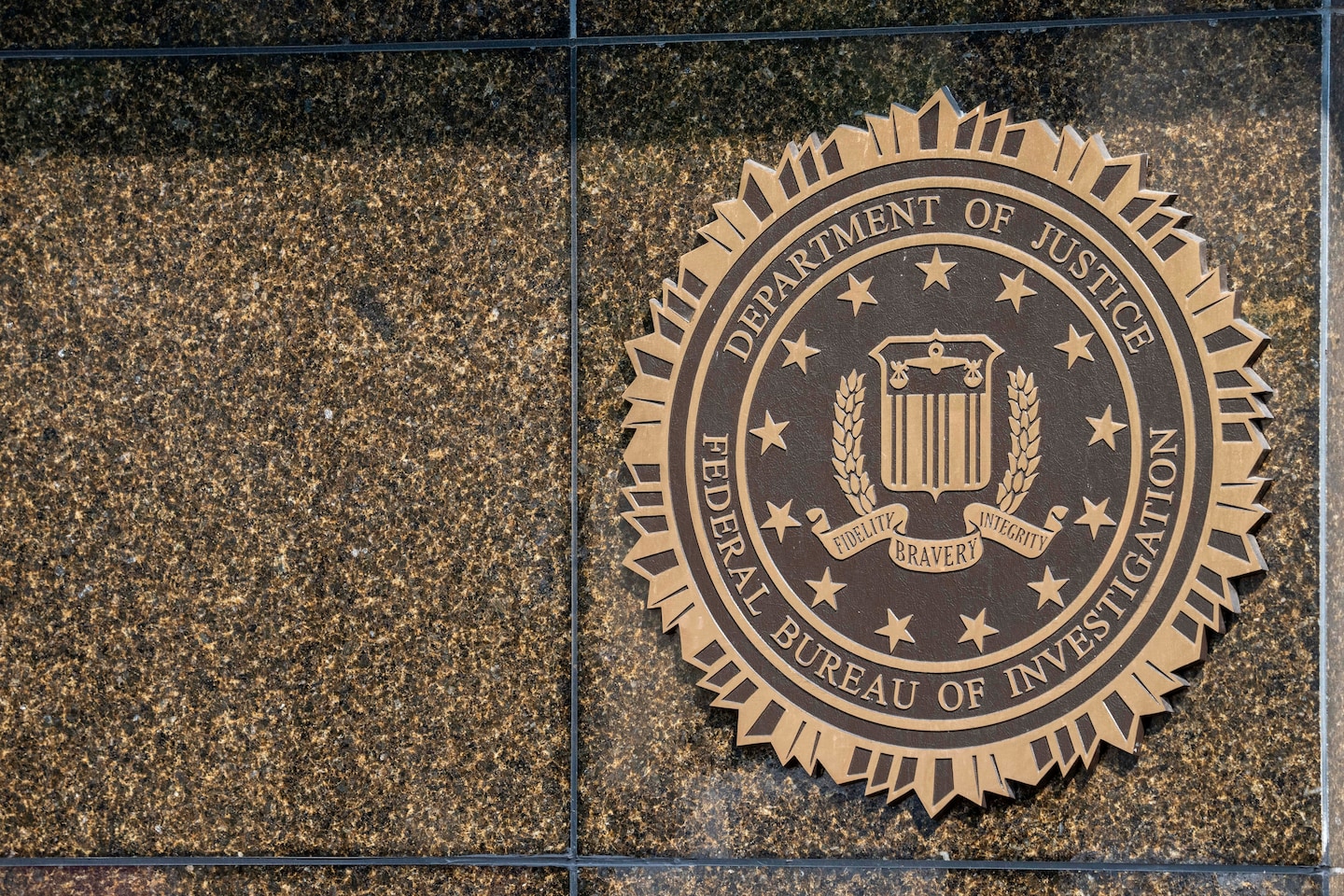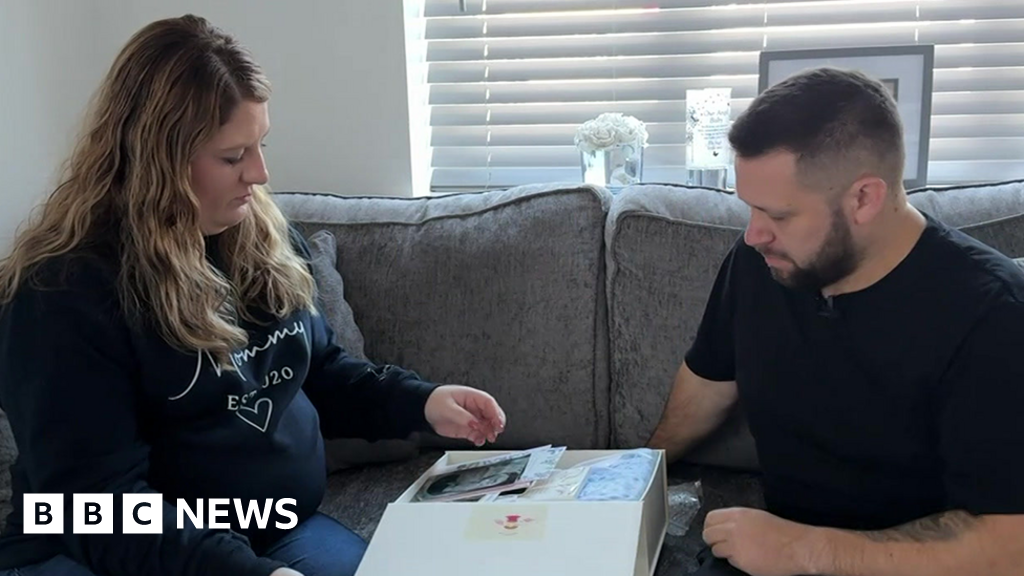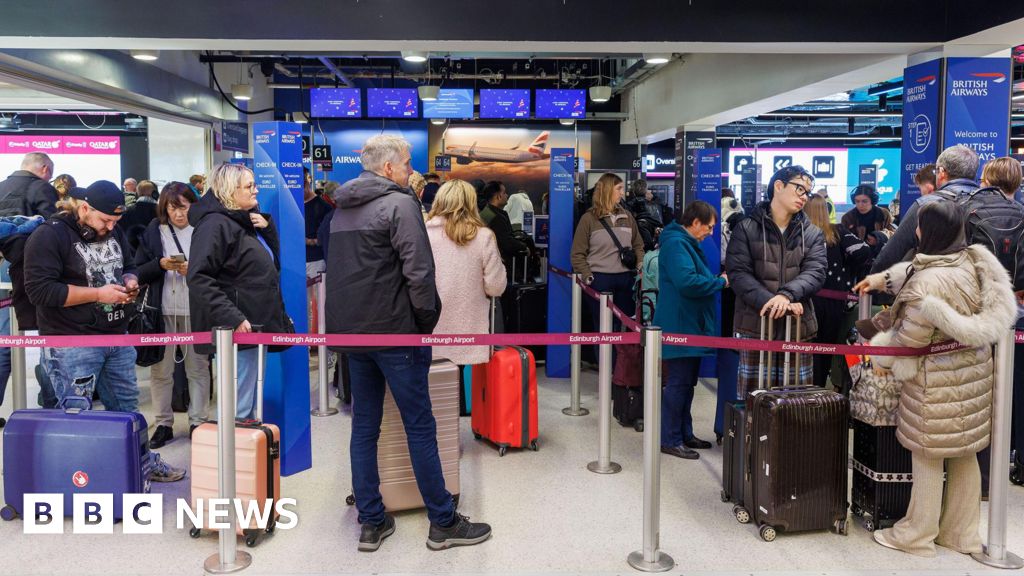
How the FBI’s visit to a Muslim woman became a right-wing rallying cry
- Science
- March 31, 2024
- No Comment
- 213
There will be no conversation, the woman tells them, and refers them to her attorney. The agents remain courteous, if thrown off their game. One of them starts to explain, “Facebook gave us a couple screenshots of your accounts,” but she isn’t having it. Eventually, the visitors give up and walk back to their silver Nissan SUV.
“This is Rolla Abdeljawad in Stillwater, Oklahoma,” the woman says as she films the car leaving her driveway. “This is America.”
Because it’s America — or, rather, a moment in America marked by outrage politics and deep distrust of the government — no further context was required for the nearly four-minute video from March 19 to go viral. Reposts of the clip have garnered millions of views across social media platforms, in large part because of right-wing pundits and conspiracy theorists.
Devoid of information about Abdeljawad or her beliefs, the video was uncomplicated by racial, religious or ideological baggage. It was a made-for-sharing scene of a woman in Oklahoma standing up for her rights. The fuzziness of the details allowed the episode to travel across cultural and political lines, turning one Egyptian American Muslim’s experience into a symbol for anyone with a grievance against the federal government. The video worked like a kaleidoscope of the fraught political climate, the image shifting depending on who was looking.
Muslim civil rights groups saw it and worried about a resurgence of surveillance tactics that vilified communities in the aftermath of the Sept. 11, 2001, attacks. Among Donald Trump’s Republican base, the visit was evidence of “Joe Biden’s Justice Department” harassing ordinary citizens. Left-wing activists saw the long arm of the state. Far-right militia groups saw proof of the “tyranny” they profess to fight.
The FBI’s Oklahoma City office declined to address the video, responding to questions with a general statement saying that the bureau routinely “engages with members of the public in furtherance of our mission.”
“We can never open an investigation based solely on First Amendment protected activity,” the statement said. “The FBI is committed to ensuring our activities are conducted with a valid law enforcement or national security purpose, while upholding the constitutional rights of all Americans.”
A representative for Facebook did not immediately respond to a request for comment.
Although the clip has spread among a wide cross-section of the online public, an uptick since late last week can be traced to promotion by the hard right’s social media stars.
“Wake up, America,” posted Richard Grenell, who is said to be a top contender for secretary of state if Trump wins the November election. “The thought police,” declared Alex Jones, the conspiracy theorist and Infowars founder, to his 2.2 million followers on X. “Holy smokes,” wrote Libs of TikTok, an account known as a right-wing outrage factory, adding with no evidence that the visit was in response to criticisms of President Biden.
“Definitely a strange turn of events. Didn’t see that one coming,” said Adam Soltani, executive director of the Oklahoma chapter of the Council on American-Islamic Relations, referring to the right-wing support for Abdeljawad. CAIR was among the civil rights groups she contacted after the agents’ visit.
“It’s concerning to me that right-wing, anti-government folks would try to spin it,” Soltani said. He said partisan point-scoring misses how anti-Muslim bias is “ingrained” in agencies like the FBI.
“We need to fix those systemic issues,” Soltani said, “and not let it turn into some anti-government conspiracy theory.”
Abdeljawad calls herself an “Okified New Yorker.” Her Egyptian-born parents moved the family from New York to Stillwater in the early 2000s to be close to their daughter during her undergrad years at Oklahoma State University. They ended up putting down roots, and Abdeljawad still lives at home between teaching stints overseas.
“Oklahoma I consider my base,” she said in a phone interview Saturday from Stillwater. “It’s where I always return to. For some odd reason, it has a hold on me.”
Still, Abdeljawad said, she also feels intensely connected to Palestinians suffering in the war-ravaged Gaza Strip. Since fighting erupted Oct. 7, when Hamas-led militants killed 1,200 people in Israel and seized around 250 hostages, Abdeljawad said she has watched in horror. The death toll has swelled to more than 32,000, according to the Gaza Health Ministry.
“What goes through my mind is sadness. Anger that the world is watching what’s going on and not stepping in to actually stop it,” Abdeljawad said.
The scenes of carnage make her feel helpless and furious, she said. She said she began looking for ways to express her solidarity with Palestinians and to condemn the actions of Israel, which she pronounces “Isra-hell.” In late October, she changed her Facebook profile picture to a masked figure in the black-and-white Palestinian kaffiyeh. She also made her posts public, because “I want people to be aware of what’s going on.”
As the war continued to rage, Abdeljawad posted angry screeds, including thinly veiled support for armed Palestinian resistance. She posted an image lionizing a Hamas militant and another calling Israeli military forces “terrorist filth.” At least one post nodded to antisemitic tropes about Jewish power. In other Facebook posts, her tone was conciliatory, such as when she praised an interfaith peace effort.
Abdeljawad said she doesn’t know which of the writings landed her on the FBI’s radar. She defended her opinions as protected speech.
“I don’t care about backlash,” she said. “In fact, I take backlash as a badge of honor.”
March 19, a Tuesday, arrived during the Muslim holy month of Ramadan. Abdeljawad’s family was out of town visiting relatives, leaving her alone at the house in Stillwater. She had woken up before sunrise to eat the traditional meal before fasting began at dawn, then went back to sleep.
Just before noon, Abdeljawad recalled, she was waking up for a second time when she heard the family’s three dogs “going crazy.” She walked to the foyer of the home, she said, and was shocked to see “a guy, not standing at the door, but hunched over peering through the window of the door.”
“This is Oklahoma — people don’t do that,” she said. “They don’t just walk up on people’s property.”
She recalled yelling, “Back away!” before running to get her phone. She started recording a video as she marched out a side door to confront the man, without realizing she was still “in my jammies” and without her usual headscarf. As her eyes adjusted to the sunlight, she said, she realized there were three people on her doorstep.
“I hear, ‘We are FBI,’ and I’m like, ‘This cannot be happening right now,’” she recalled. “This is not real.”
The tense meeting with the agents — two men and a woman — culminated in a back-and-forth on civil liberties. When one of them tried to reassure Abdeljawad that “we’re not here to arrest you,” she cut him off.
“Well, you can’t arrest me for freedom of speech,” she told him. “We live in America.”
They kept talking and the same agent added, “We do this every day, all day long. It’s just an effort to keep everybody safe and make sure nobody has any ill will.”
After filming the encounter, Abdeljawad said, she immediately posted the video on Facebook, to ensure it was “out in the open in case I needed to defend myself.” She also alerted attorneys and rights groups, including the American Civil Liberties Union and CAIR-Oklahoma, where she previously had served on the board.
Abdeljawad said she hasn’t heard from the FBI since and sees no reason to pick up the conversation: “If I have not transgressed the boundaries, the limitations, on free speech, and I’m not breaching the law, I’m not calling for violence against others, then really I have nothing to discuss with them.”
Abdeljawad’s defiance was remarkable to Muslim activists who said they were witnessing the fruits of years of work by advocacy groups to educate communities about their rights, especially when dealing with authorities.
“In our past, if we’re going back a decade or more, we get the phone call from people when they’ve already let the FBI in their house,” said Soltani, of CAIR-Oklahoma. “They’ve served them tea and they’ve answered questions and then they feel like, ‘Uh-oh, I shouldn’t have talked to them.’”
Abdeljawad’s story made the rounds in Muslim circles, but went viral Wednesday after her attorney, Hassan Shibly, posted her video to his Instagram, X and Facebook accounts. From there, it moved into MAGA circles, where it was fueled by comments suggesting she was targeted by the FBI because of anti-Biden posts.
The video has since popped up in Reason, the libertarian magazine, and in a Fox News article. Anti-government militants hailed her as a patriot. Edward Snowden, the National Security Agency whistleblower living in Russia, weighed in on X: “So, the FBI is now doorstopping ordinary Americans for criticizing the White House’s Gaza policy online?”
Abdeljawad said she’d had no idea about extremist involvement in the wildfire spread of the video and didn’t seem sure of how to reconcile it. She said she didn’t want to judge others or squander the chance to build bridges. Her own politics are “the middle,” she said, in accordance with Islamic teachings about moderation.
“We know what happens if our rights were to be taken away,” she said. “None of us wants that.”
Over the weekend, Abdeljawad’s views came under attack by pro-Israel activists on social media who flooded comments sections with screenshots of her posts, urging conservative defenders to rescind their support.
Conservative figure Chris Loesch, for example, shared Abdeljawad’s video last week with the comment: “The FBI needs to be dismantled from the top down. An agency that had lost its way.” By Saturday, Loesch was on the defensive as followers called him out for supporting what one described as “an un-American Muslim.”
“Is she an American citizen? I disagree with her, think her views are disgusting and she is wrong but I see that sort of crap from popular accounts on X all day,” Loesch replied. “She still has a right to be offensively wrong, right?”
As some of the support melts away, Abdeljawad has begun receiving hate mail from pro-Israel strangers. Screenshots showed messages disparaging her ethnicity and religion; she also posted her fiery responses. The video’s bizarre kumbaya moment was fleeting.
At home in Stillwater, Abdeljawad said she had no regrets. The FBI visit she filmed in her pajamas has been viewed by millions of people and stirred debate on the limits of free speech.
“I am that person that actually has a pocket Constitution on their shelf,” Abdeljawad said. “They actually, unfortunately for them, walked in on a very educated, very aware American.”
#FBIs #visit #Muslim #woman #rightwing #rallying #cry









